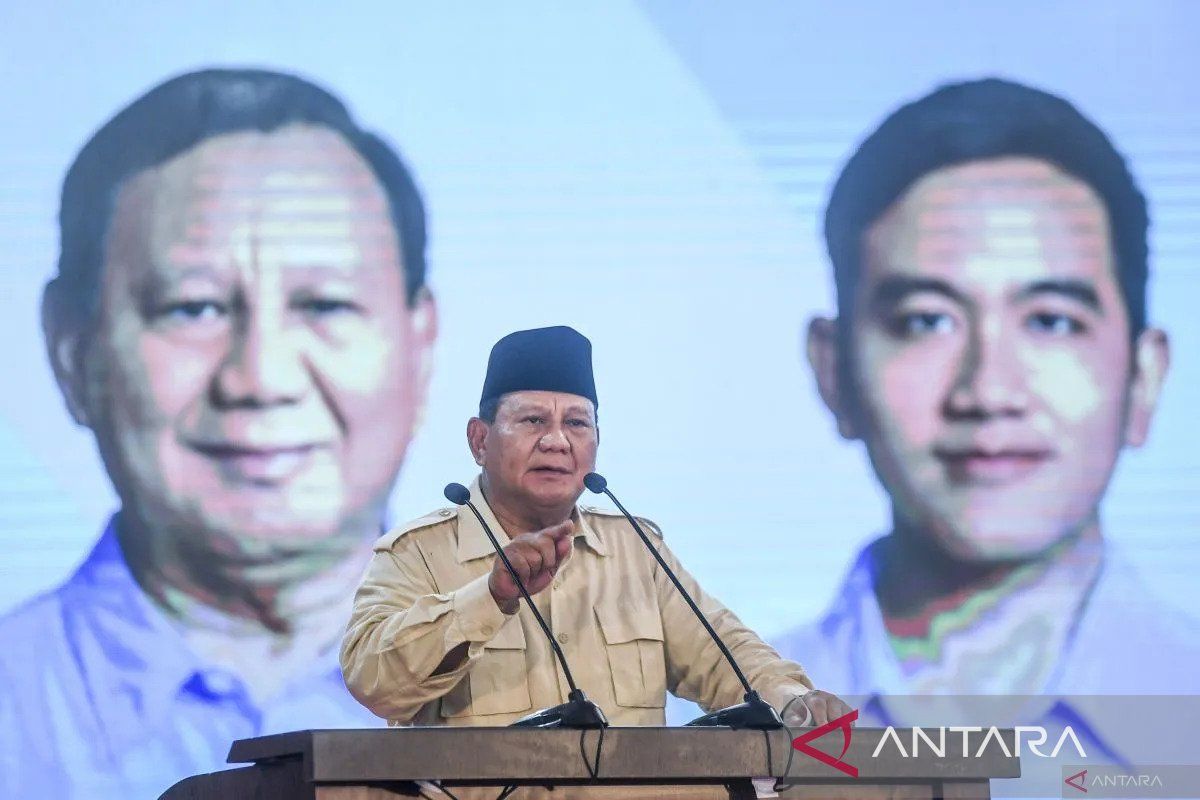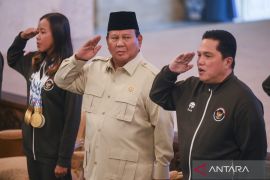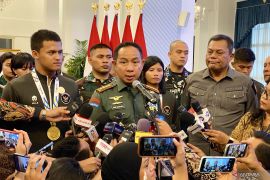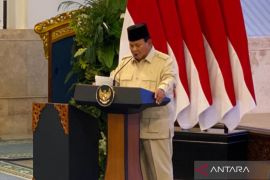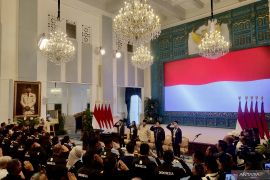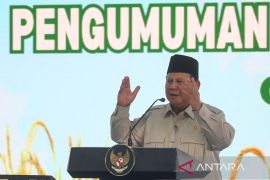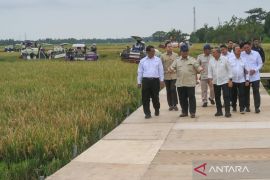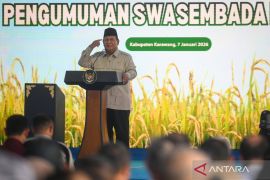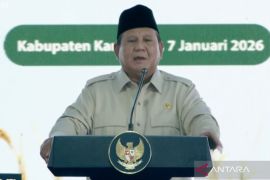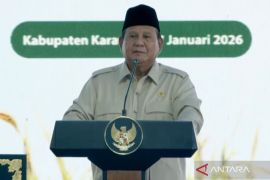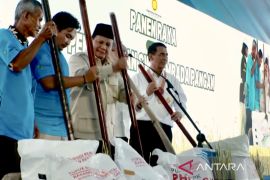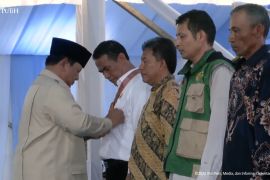On October 20, the nation will bear witness to Prabowo Subianto, a retired army general currently serving as defense minister, succeeding President Joko Widodo as the 8th president alongside former Surakarta mayor, Gibran Rakabuming Raka, as the 14th vice president.
Backed by most political parties, including the Crescent and Moon Party (PBB), National Mandate Party (PAN), and Prabowo's Gerindra Party, the pair emerged victorious in the 2024 presidential election in February.
In such a period of transition, members of the public always wondered who would be bestowed the honor of serving the nation as ministers and whether there would be returning figures to the incoming cabinet.
This time, however, another question arose in addition to the aforementioned recurring ones: How many ministries will Prabowo-Gibran lead for the next half a decade?
In May, two months after the General Elections Commission (KPU) announced Prabowo and Gibran as president- and vice president-elect, then-chairman of PBB Yusril Ihza Mahendra remarked that a discourse on expanding the cabinet, from 34 to about 40 ministries, had been set in motion.
The former state secretariat minister deemed it crucial for the House of Representatives (DPR) to revise the State Ministries Law to provide a president with the authority to cut, increase, merge, or split ministries for the sake of their people-oriented policies.
Related news: Transition to new government proceeds smoothly: President
Indonesia’s cabinets in numbers
Before diving deeper into the projected huge ministerial cabinet of Prabowo and Gibran, let us trace back the history of Indonesia’s cabinets since the birth of the independent nation-state.
In Indonesia’s early years of independence from 1945 until 1967, a period known as the Old Order led by First President Soekarno, the country witnessed the rise and fall of 25 cabinets, including the Dwikora Cabinet II that had over 100 ministers and ministerial-level president’s aides working for the nation only from February 24 to March 28 in 1966.
In the following year, Soeharto took over state leadership as acting president, forming the Ampera Cabinet II, which would be followed by seven Development Cabinets over the next three decades. This period, known as the New Order, saw Development Cabinet V employing most ministers, with 44, while Development Cabinets I and II had the fewest, with 24 each.
In the dawn of the Reformation Era from 1998 to 2004, Third President Bacharuddin Jusuf Habibie directed 37 ministers, Fourth President Abdurrahman Wahid employed 36 ministers, and Fifth President Megawati Soekarnoputri had 33 ministers on her side.
Meanwhile, 6th President Susilo Bambang Yudhoyono and 7th President Joko Widodo each led 34 ministers in their decade-long presidencies. Unlike their predecessors, the two heads of state were directly elected by the people through general elections.
Related news: President-elect briefs cabinet minister, agency head candidates
Unraveling the cabinet riddle
As the nation marches closer to Inauguration Day, pieces of the puzzle revolving around Prabowo-Gibran’s projected cabinet have begun falling into place.
Trade Minister and PAN Chairman Zulkifli Hasan, on September 11, confirmed that the incoming government would run a larger ministerial cabinet.
"It is true that there will be an increase (in the number of ministerial posts). The number might be around that (44 ministers),” he remarked.
On the following day, Sufmi Dasco Ahmad, Gerindra Party Executive Chairman, explained that the plan to increase the number of ministries is meant to help the incoming government optimize its work and fulfill the vision and missions promoted by Prabowo and Gibran in the Asta Cita (Eight Aspires) document during their electoral campaign.
He affirmed that Prabowo would prioritize assigning professionals rather than mere cadres of political parties to the posts prepared in his cabinet.
The path towards the birth of a mega ministerial cabinet structure was then made wide open with the DPR, on September 19, legislating the State Ministries Law Amendment Bill, thereby allowing a president to establish a new ministry for specific purposes, revise a structural organization of a ministry, and also determine the number of ministries needed beyond the now-obsolete limit of 34.
Academician and politics observer from Al Azhar Indonesia University Ujang Komarudin assessed that Prabowo is well aware of the consequences of shooting up the ministerial berth count, pointing to the inevitable hike in budget.
Meanwhile, a politics science lecturer at Jakarta State Islamic University Adi Prayitno emphasized that an increase in ministries should only be oriented towards boosting ministers’ performances, which are key to actualizing Prabowo-Gibran’s national programs and objectives.
Based on a document listing at least 46 ministries believed to operate for the 2024-2029 term, the Prabowo-Gibran administration will split several existing ministries to establish new ones, such as the Tourism Ministry, Creative Economy Ministry, Village Ministry, Transmigration Ministry, Law Ministry, Human Rights Ministry, Culture Ministry, and Higher Education Ministry.
Moreover, the incoming government is expected to form brand new ministries, such as the Ministry of Protection of Indonesian Migrant Workers, Ministry of Population and Family Development, and Coordinating Ministry for Community Affairs.
Prabowo then made a leap on October 14 by summoning 49 individuals comprising academicians, religious figures, and 16 current ministers to his residence in South Jakarta to discuss the ministerial roles they might be assigned to.
Present among the invitees, Finance Minister Sri Mulyani Indrawati confirmed that she would reprise her role as state treasurer for the next five years. She and Prabowo spoke at length about state spending, state revenues, and the impacts of the State Budget on the community.
Prabowo also made the most of the occasion to request Abdul Mu’ti, a leader figure at one of Indonesia’s largest religious organizations Muhammadiyah, to chair the new Ministry of Primary and Secondary Education with the assistance of a deputy minister.
To his surprise, Nasaruddin Umar, Grand Imam of Southeast Asia’s largest mosque of Istiqlal, was also invited by the president-elect to join the cabinet.
“I did not expect it, and I was surprised. I never imagined it,” Umar said while admitting to having no prior talks with Prabowo or anyone from the Gerindra Party about a ministerial role.
Although reluctant to disclose the position that Prabowo entrusted him to, the grand imam ensured that his duties in the cabinet would not veer from his daily activities in the religious field.
Prabowo, for his part, affirmed that all the candidates he summoned to his place wield the requisite capacities to carry out their duties optimally in his upcoming grand cabinet.
"Before I invited them here, they had actually stated their willingness to assist me. Actually, today I only confirmed and assured them whether or not they were willing to help me in the areas that I offered them," he told the media.
He then took a similar step the following day, inviting 59 figures nominated for deputy ministerial positions and agency heads to his residence. Among the summoned candidates were badminton legend Taufik Hidayat, celebrity and businessman Raffi Ahmad, Indonesian Ambassador to the UN Arrmanatha Nasir, and Former Army Chief of Staff Dudung Abdurachman.
Prabowo then invited ministerial, deputy ministerial, and agency head candidates to a briefing at his residence in Bogor, West Java, on October 16-17.
It is crystal clear that Indonesia is no stranger to changes in cabinet composition. Prabowo and Gibran are getting closer to breaking two decades of status quo, setting greater ambitions to bring progress to the nation through their 17 priority programs, which they deem necessitate the formation of more ministries.
Although Prabowo has begun to draw his “cards” for the cabinet riddle, the Indonesian nation might have to wait until the ministerial inauguration scheduled for October 21 to witness the ultimate piece of the puzzle falling into place, capturing the whole picture of the awaited grand cabinet.
Related news: Indonesian businesses expect Prabowo cabinet free from silo mentality
Editor: Yuni Arisandy Sinaga
Copyright © ANTARA 2024
